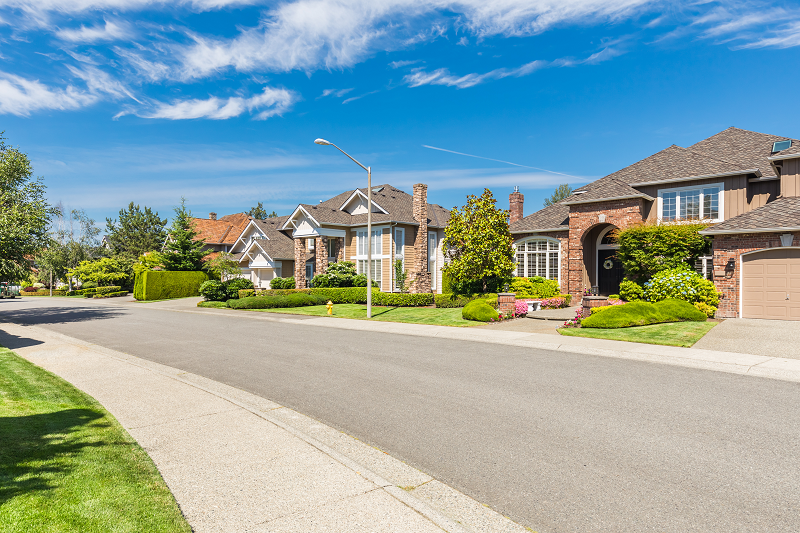
Are you looking to become a house flipper in Pennsylvania? Or do you have buyer’s remorse after buying a place and want to learn whether you can sell a home right after buying it? So, how soon can you sell a house after buying it?
Whatever your reason for selling, the information below will describe the laws and regulations regarding selling a house one year after purchasing it. You will want to at least break even and land on a high sale price. Here, you will learn about negative equity, the prepayment penalty, and the top reasons why people complete a home sale one year after buying the property.
How Soon Can You Sell a House After Buying It?
Homeowners looking to sell a home soon after buying it need to understand that they may face a capital gains tax and a mortgage prepayment penalty. If you’re looking to sell a house fast in Philadelphia, be aware that the decision to sell will come with risks.
Essentially, there is a common five-year rule that advises new homeowners to avoid selling their place for five years to avoid financial losses. Even in a seller’s market, selling a place soon after purchase will keep the value of the home from rising enough to cover selling costs and the mortgage balance.
The five-year rule means that sellers are unlikely to break even if they attempt to sell their house in less than five years of home ownership. The rule entails the initial closing costs for the homeowner, the real estate agent’s commission fees, the funds put into repairs and renovations, and the amount of time it takes to increase the value of your home.
However, the housing market lately has skyrocketed and home prices have jumped quickly. As such, sellers may potentially sell their place in less than five years without losing any money.
If the market conditions are right, you can potentially make a profit off the sale of your home even within a few years after the initial purchase. This is especially true since the real estate market is undergoing one of the largest housing booms of all time.
Nonetheless, the financial benefits of homeownership are usually lost if you try to sell your place in one year or less after purchasing it.
To break even, you will need to wait about two years and three months if you have a median-valued house to gather enough home equity and pay down your mortgage loan balance enough. That amount of time is more cost-effective than renting an apartment.
That breakeven horizon includes monthly mortgage payments on a 30-year fixed-rate mortgage and a 20 percent down payment on the home. As such, in today’s booming seller’s market, you can sell your new home after a couple of years.
Laws When Selling a House One Year After Buying It

If certain life changes like a job relocation led you to consider home selling one year after buying the property, you will need to understand the laws and regulations surrounding the financial ramifications of selling soon after purchase.
For instance, you may face a high capital gains tax and large transaction costs when selling your place one year after buying it. At that point, you may not have built enough equity and the fair market value of the house may not have grown enough to cover realtor commissions and other fees. You may need to cover various costs out of pocket.
If you do need to sell your place one year after buying it, you can avoid many of the typical financial losses by working with a tax professional and an experienced real estate agent who has expertise in short-period sales.
Most housing market experts would not advise selling a house without a realtor if you’re trying to sell the place soon after purchase. You should interview several realtors from different mortgage brokerage companies before picking the one who can ensure you break even after the home sale.
The first step you’ll need to take when selling after a year is to determine the value of your home. Then, you need to make a budget to see if you can afford the typical seller closing costs.
If you sell your home after less than two years of owning it, federal law requires you to pay a capital gains tax. The federal tax rate also depends on your income and whether you have owned the property for at least one year.
You can potentially avoid the capital gains tax if you delay selling your place for at least two years of owning it. You can also wait to sell your property until you qualify for a lower tax bracket. That means waiting until you’ve owned the home for at least 12 months. At that point, you will qualify for long-term capital gains tax rates, which are much lower.
You can also work with a tax professional to see if you qualify for a partial tax exemption to avoid the large capital gains tax. For instance, divorce, job loss, or medical issues may qualify you for such a tax exemption. These are some of the ways you can avoid or lower your capital gains tax.
What Is Negative Equity?
Negative equity takes place when the value of your real estate is lower than the outstanding balance on the mortgage loan used to help buy the primary residence or other property. Essentially, you can figure out the negative equity value by using the housing market value of your home and subtracting the value left on your mortgage loan.
Another common term for negative equity is known as being “underwater.” Usually, negative equity takes place when the housing market faces a recession, a depression, or a housing bubble. These are all possible causes of falling home prices.
Home equity is the real estate property’s market value after you subtract any liens from it. The home equity value can change depending on the market trends and how much you pay off your mortgage over time.
If a mortgage loan was used to help purchase your home, the mortgage company has an interest in the property until you have paid off the loan. Home equity entails the home’s value that the owner has without the loan portion.
Essentially, home equity entails the amount in your down payment and any mortgage payments made. Negative equity takes place when the value of the home falls below the amount you still owe on your mortgage. Negative equity or underwater mortgages were a common occurrence during the financial crisis in 2007 and 2008.
The underwater mortgages went alongside a major recession that harmed Americans economically for years into the future.
Reasons Why You Might Sell a House After One Year
There are many reasons why you may need to sell a house after one year of purchase. Some of these reasons include:
- Relocating due to a job change
- Divorce requiring you to move
- Health emergency requiring you to relocate to a location with a major hospital
- Your family member from another state has a health problem and you need to move to help out
- You have buyer’s remorse as the house needs too many repairs or other issues
- A natural disaster like a flood has destroyed the property and you need to move
- Your house is undergoing foreclosure
When you do end up needing to sell and move quickly after purchasing a new home, you may also need to buy a different place at the same time. Doing so can get complex. If the sale of your home falls through, you may not have the funds necessary to buy a new house at the same time.
However, there are simple steps you can take to sell a house and buy another one concurrently. First, you’ll need to work with top professionals and highly skilled realtors who can help you price your home appropriately.
Do you have the funds necessary to handle two mortgages at the same time? If not, you should likely add a contingency in your offer on a new property in case the sale of your home or a new mortgage falls through. Consider the costs of selling a house in 2022 before buying a new one.
You will also need to decide on the right timeline to ensure you can quickly move into your new home after selling your place.
Conclusion
After reading the information above, you should know the answer to the question: how soon can you sell a house after buying it? House flippers and others can sell the property after renovations as quickly as one year after buying it.
However, if you are a Pennsylvania property owner who had a job relocation or another emergency requiring you to sell a place soon after buying it, you may want to seek out cash home buyers in Willow Grove. Typically, real estate investors and cash buyers can complete a home sale in only a few weeks. They also buy properties in their as-is condition.
If you’re looking for potential buyers for a short sale, Problem Property Pals can help. We buy houses Pennsylvania residents love, so call us today!

 Call Us!
Call Us!